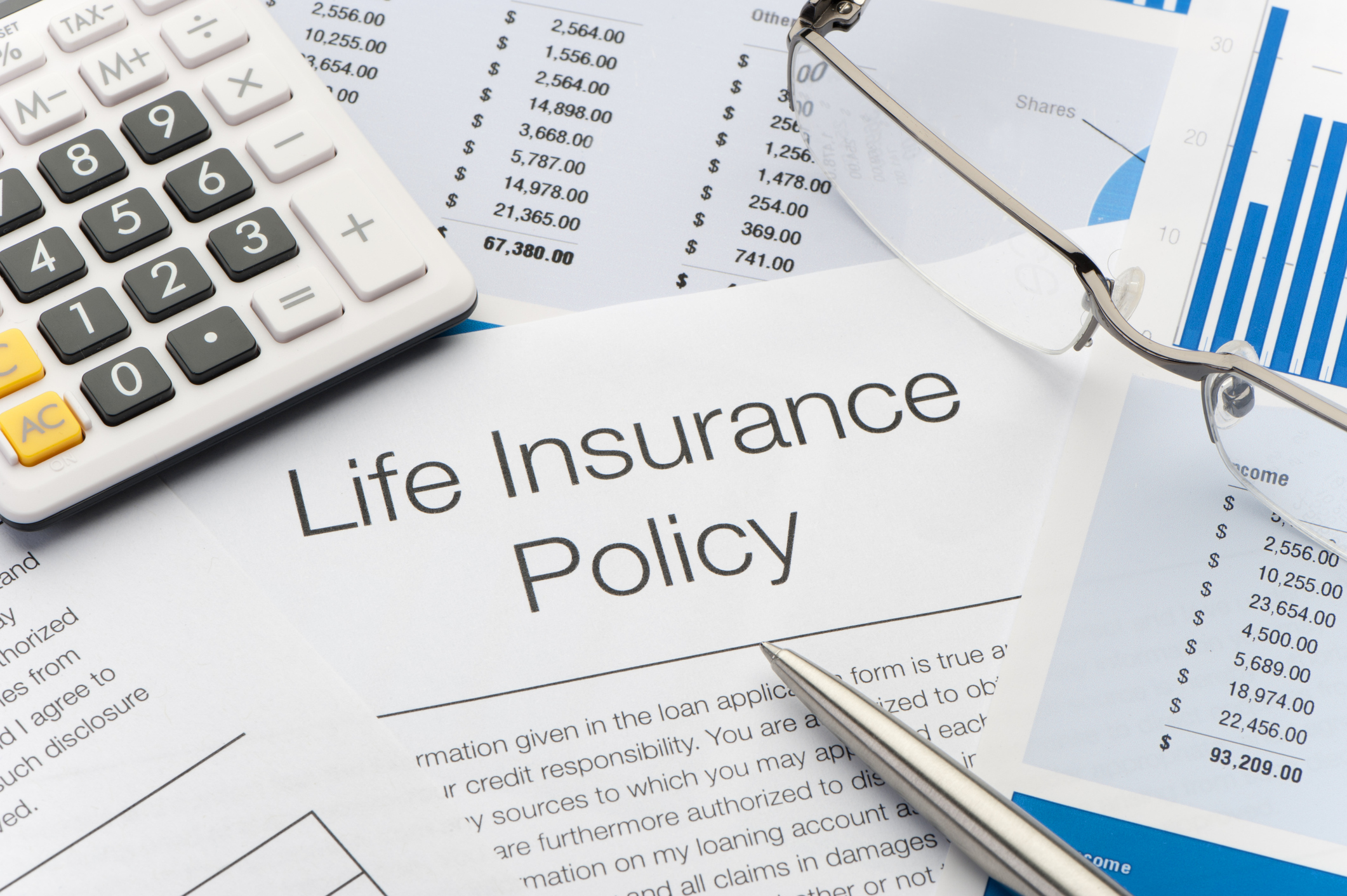7 Ways to Utilize Your Life Insurance Policy’s Cash Value
If you no longer need life insurance, don't just cancel the policy and cash out. Instead, consider one of these strategies to capitalize on its value while minimizing taxes.


Profit and prosper with the best of Kiplinger's advice on investing, taxes, retirement, personal finance and much more. Delivered daily. Enter your email in the box and click Sign Me Up.
You are now subscribed
Your newsletter sign-up was successful
Want to add more newsletters?

Delivered daily
Kiplinger Today
Profit and prosper with the best of Kiplinger's advice on investing, taxes, retirement, personal finance and much more delivered daily. Smart money moves start here.

Sent five days a week
Kiplinger A Step Ahead
Get practical help to make better financial decisions in your everyday life, from spending to savings on top deals.

Delivered daily
Kiplinger Closing Bell
Get today's biggest financial and investing headlines delivered to your inbox every day the U.S. stock market is open.

Sent twice a week
Kiplinger Adviser Intel
Financial pros across the country share best practices and fresh tactics to preserve and grow your wealth.

Delivered weekly
Kiplinger Tax Tips
Trim your federal and state tax bills with practical tax-planning and tax-cutting strategies.

Sent twice a week
Kiplinger Retirement Tips
Your twice-a-week guide to planning and enjoying a financially secure and richly rewarding retirement

Sent bimonthly.
Kiplinger Adviser Angle
Insights for advisers, wealth managers and other financial professionals.

Sent twice a week
Kiplinger Investing Weekly
Your twice-a-week roundup of promising stocks, funds, companies and industries you should consider, ones you should avoid, and why.

Sent weekly for six weeks
Kiplinger Invest for Retirement
Your step-by-step six-part series on how to invest for retirement, from devising a successful strategy to exactly which investments to choose.
Permanent life insurance policies—like universal, variable and whole life—offer more than a death benefit. Some include cash value, which is a pool of money you can use while still alive.
If you’ve had a policy for years, the cash value could be considerable. “The accumulation could be more than you put in, and this opens up all kinds of options,” says Jonathan Howard, a certified financial planner with SeaCure Advisors in Lexington, Ky.
The cash value in permanent life insurance is your money, to be tapped as needed, but your options for doing so will depend on the type of policy and the carrier. Before doing anything, ask the insurer how much you can safely withdraw per year based on the cash value balance and policy terms. If you withdraw too much too early, the policy’s cash value could run out, forcing you to start paying more in premiums or have the coverage lapse.
If you no longer need coverage, it might be tempting to stop the policy and cash out all at once, but consider the tax ramifications, says Luke Chapman, a partner with Precision Wealth Partners in New Castle, Del. Any cash value growth above what you paid in premiums is taxed as ordinary income when withdrawn. For example, if you paid in $20,000, have $100,000 in cash value and withdraw the difference, the $80,000 of growth is taxable.
There are better ways to put that cash value to work that won’t ramp up your tax bill.

Live Off of It
A more tax-effective option is to withdraw only what you need each year. Howard recommends keeping some money for an emergency fund, perhaps 12 months of expenses, with the rest used to supplement your retirement income. Withdrawals draw down the tax-free premium payments first; taxes are owed only after you start withdrawing the gains.

Borrow Money
You can also tap the cash value through a policy loan. You won’t owe taxes for withdrawing gains this way. Plus, you’ll have the option to repay the money, whereas you can’t reverse withdrawals. If the money is not repaid, the death benefit will cover the loan balance when you pass away.
The insurer will charge interest for the loan. “The interest rate is determined by the policy contract and is carrier specific,” says Howard. “It’s typically 4% to 8% a year.” Policy loan rates don’t usually change with market conditions, he says, so don’t expect a deal today just because overall interest rates are low. Your remaining cash value can be used to pay the interest.

Exchange It for an Annuity
The IRS lets you swap your permanent life insurance for an annuity through a 1035 exchange, which is a tax-free transfer of one contract for another. This move can generate more retirement income. “Let’s say the max payout stream from a cash value insurance policy is $10,000 a year. Converting to an annuity might generate $12,500,” Chapman says. An annuity could also guarantee the payments will last your entire life, but you will be canceling your life insurance policy, a move that can’t be reversed.

Convert to a New Policy to Pay for Long-Term Care
If you’d like coverage for long-term care, consider converting your life insurance into another policy with a long-term care rider (if yours doesn’t have it already). You keep your life insurance, but part of the death benefit can be used to pay for long-term care expenses.

Use It as Collateral
The cash value is an asset that increases your chances of qualifying for a loan or mortgage from a lender. It can even serve as the loan’s collateral, but Chapman warns to structure the deal carefully, as there can be tax consequences. Always ask an insurance expert before using cash value this way.


Profit and prosper with the best of Kiplinger's advice on investing, taxes, retirement, personal finance and much more. Delivered daily. Enter your email in the box and click Sign Me Up.

David is a financial freelance writer based out of Delaware. He specializes in making investing, insurance and retirement planning understandable. He has been published in Kiplinger, Forbes and U.S. News, and also writes for clients like American Express, LendingTree and Prudential. He is currently Treasurer for the Financial Writers Society.
Before becoming a writer, David was an insurance salesman and registered representative for New York Life. During that time, he passed both the Series 6 and CFP exams. David graduated from McGill University with degrees in Economics and Finance where he was also captain of the varsity tennis team.
-
 Quiz: Do You Know How to Avoid the "Medigap Trap?"
Quiz: Do You Know How to Avoid the "Medigap Trap?"Quiz Test your basic knowledge of the "Medigap Trap" in our quick quiz.
-
 5 Top Tax-Efficient Mutual Funds for Smarter Investing
5 Top Tax-Efficient Mutual Funds for Smarter InvestingMutual funds are many things, but "tax-friendly" usually isn't one of them. These are the exceptions.
-
 AI Sparks Existential Crisis for Software Stocks
AI Sparks Existential Crisis for Software StocksThe Kiplinger Letter Fears that SaaS subscription software could be rendered obsolete by artificial intelligence make investors jittery.
-
 9 Types of Insurance You Probably Don't Need
9 Types of Insurance You Probably Don't NeedFinancial Planning If you're paying for these types of insurance, you might be wasting your money. Here's what you need to know.
-
 10 Retirement Tax Plan Moves to Make Before December 31
10 Retirement Tax Plan Moves to Make Before December 31Retirement Taxes Proactively reviewing your health coverage, RMDs and IRAs can lower retirement taxes in 2025 and 2026. Here’s how.
-
 The Rubber Duck Rule of Retirement Tax Planning
The Rubber Duck Rule of Retirement Tax PlanningRetirement Taxes How can you identify gaps and hidden assumptions in your tax plan for retirement? The solution may be stranger than you think.
-
 Money for Your Kids? Three Ways Trump's ‘Big Beautiful Bill’ Impacts Your Child's Finances
Money for Your Kids? Three Ways Trump's ‘Big Beautiful Bill’ Impacts Your Child's FinancesTax Tips The Trump tax bill could help your child with future education and homebuying costs. Here’s how.
-
 Key 2025 Tax Changes for Parents in Trump's Megabill
Key 2025 Tax Changes for Parents in Trump's MegabillTax Changes Are you a parent? The so-called ‘One Big Beautiful Bill’ (OBBB) impacts several key tax incentives that can affect your family this year and beyond.
-
 Amazon Resale: Where Amazon Prime Returns Become Your Online Bargains
Amazon Resale: Where Amazon Prime Returns Become Your Online BargainsFeature Amazon Resale products may have some imperfections, but that often leads to wildly discounted prices.
-
 What Does Medicare Not Cover? Eight Things You Should Know
What Does Medicare Not Cover? Eight Things You Should KnowMedicare Part A and Part B leave gaps in your healthcare coverage. But Medicare Advantage has problems, too.
-
 QCD Limit, Rules and How to Lower Your 2026 Taxable Income
QCD Limit, Rules and How to Lower Your 2026 Taxable IncomeTax Breaks A QCD can reduce your tax bill in retirement while meeting charitable giving goals. Here’s how.
